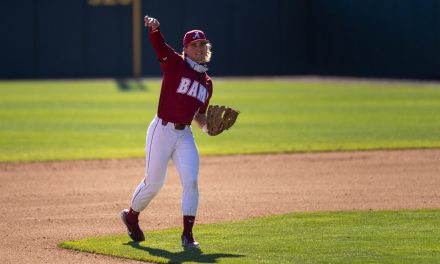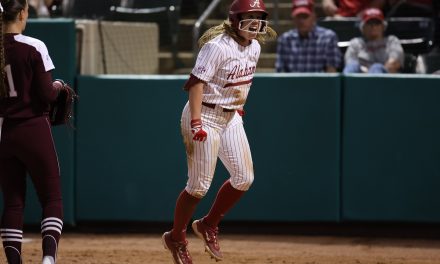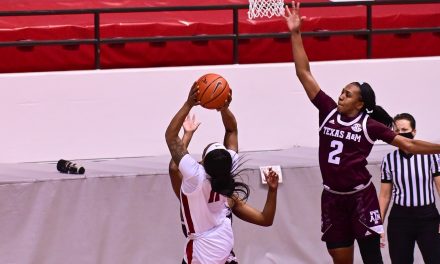By outreach@cw.ua.edu (James Ogletree)
The ultimate frisbee club team has never suffered from a shortage of talent. It places a premium on developing its talent through teamwork. This semester, that task has become significantly more difficult, as the club must do so without an official coach for the first time.
With the loss of a single authority figure, club president Daniel Conner said the team members now have more responsibility to hold each other accountable.
“The stuff that we have to work on is the small things, like making sure that we get the most out of practice and making sure that we’re loud and encouraging on the sidelines,” Conner said.
Without a coach on the sideline, the team’s four captains have embraced a more active role during games, including how to tailor the offense to the way the defense is playing.
Despite this new leadership role, Conner said since the captains are themselves part of the game, their ability to see the plays unfold and decide how to adjust accordingly is limited.
“An adverse effect of that might be sometimes we’re a little slower to make adjustments if teams give us something that we’re not expecting,” Conner said. “It’s just little things like that that can boost you from a good team to a great team.”
Captain Nathan Lyle said a recent disagreement with another team tested the team’s composure. He said a calming, unifying influence on the sideline would have helped the team regain its poise and refocus on the game.
Instead, the captains and other players, who are mired in the emotions and intensity of the game, had to diffuse the situation themselves.
“Last year we would’ve had somebody as our coach to come in to solve that and make sure nothing escalated,” Lyle said. “It was a lot harder to have everyone stay relaxed.”
Conner also said the team members originally had a hard time accepting criticism from teammates, but it was necessary because there was no coach to suggest areas of improvement.
“If Nick Saban were to come say you need to do something better, you’d say ‘yes sir’ and move on,” Conner said. “But if a 20-year-old guy is telling it to you, it’s a little harder to swallow.”
Lyle, however, said the team’s leadership has prevented the criticism from causing much tension.
“I think it’s been a good thing. Everyone is in it together and anyone at any time can have a critique or a suggestion,” Lyle said.
Despite the growing pains the team has experienced, Lyle said the transition has primarily been a benefit. The team sometimes disliked the “armchair quarterbacking” of the past or receiving instructions from someone not actually on the team.
“There [was] a little bit of feeling that our coach is just making the calls and doesn’t necessarily feel the repercussions of them like we do,” Lyle said. “[Now] you see us working alongside and trying the stuff that we’re telling them to try.”
Now, the importance of every member of the team contributing to a group consensus has led to more involvement and dedication.
“Last year there were multiple instances of people who you felt like weren’t giving it their all,” Lyle said. “This year I feel like all of that is gone, which is a real blessing.”
Source:: The Crimson White Sports









